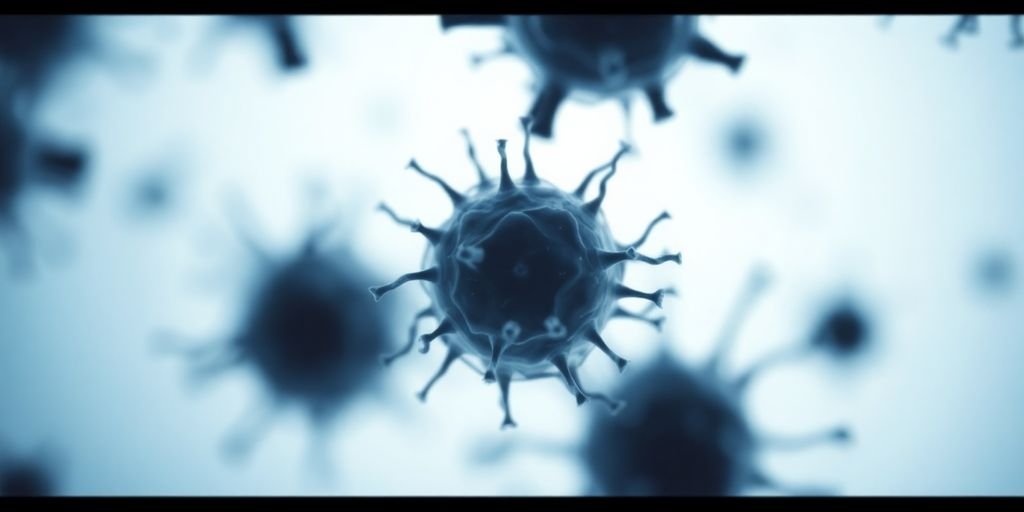Rise of Cancer Deaths in India? Do You Know Everyone Has Cancer Cells?

Cancer is a word that no one wants to hear, yet it’s becoming more common in conversations across India. The country is seeing a surge in cancer cases and, unfortunately, cancer deaths. But here’s something not everyone knows: we all have cancer cells in our bodies. It’s true. These cells usually don’t cause harm unless they start growing uncontrollably. In India, this uncontrolled growth is becoming a major health concern, with lifestyle changes, pollution, and genetics playing a part. Let’s dive into what’s happening and how we can tackle it.
Key Takeaways
- Cancer deaths in India are on the rise, with lifestyle and environmental factors contributing significantly.
- Everyone has cancer cells, but they usually remain harmless unless triggered by specific conditions.
- Regular screenings and early detection are crucial in reducing cancer mortality rates.
- Lifestyle changes, such as a healthier diet and quitting smoking, can significantly reduce cancer risk.
- Public health initiatives and awareness are essential in combating the growing cancer burden in India.
Introduction
What Are Cancer Cells?
Cancer cells are like rebels in your body. Normally, our cells grow, divide, and die in an orderly fashion. But cancer cells? They ignore these rules. They grow uncontrollably, refusing to die when they’re supposed to. This makes them different from normal cells. They can invade nearby tissues and even spread to other parts of the body, a process known as metastasis.
Here’s a quick rundown of some key characteristics of cancer cells:
- Lack of control in growth and division.
- Ability to invade other tissues.
- Potential to spread throughout the body.
How Cancer Cells Develop
So, how do these rogue cells come to be? It all starts with changes, or mutations, in the DNA. Think of DNA as the instructions for building and maintaining cells. When these instructions get messed up, cells can start behaving badly. These mutations can be triggered by various factors, such as:
- Environmental exposure to harmful substances like tobacco smoke or radiation.
- Genetic predispositions that make some people more prone to cancer.
- Lifestyle choices, such as diet and physical activity, can also play a role.
Understanding how cancer cells develop helps us figure out ways to prevent and treat this disease. It’s about knowing the enemy to fight it better.
Current Statistics on Cancer Deaths in India
Cancer deaths in India have been on a worrying rise over the past few decades. The mortality rate has increased by a staggering 46.02% from 1990 to 2021. Back in 1990, the rate was 41.39 per 100,000 people, but by 2021, it had climbed to 60.44 per 100,000. This stark rise reflects the growing burden of cancer across the nation.
Key Figures
- In 2021, the incidence rate of cancer went up by 34.94% compared to 1990.
- Disability-adjusted life years (DALYs), which measure the overall disease burden, increased by 22.48% over the same period.
- Cervical cancer deaths alone were estimated to be 35,691 in 2023.
Gender and Regional Disparities
The cancer mortality rate also shows significant gender and regional differences. For instance, in 2021, mortality rates for males ranged from 47 to 176 per 100,000 population, whereas for females, it was between 45 and 113 per 100,000 population. Regions like Arunachal Pradesh, Assam, and Uttar Pradesh recorded the highest cancer mortality rates for both genders.
The increasing prevalence of cancer in India highlights the urgent need for improved healthcare infrastructure and public health strategies. Addressing these disparities is crucial to managing the cancer burden effectively.
The rise in cancer deaths per year is not just a statistic but a call to action for better prevention, early detection, and treatment strategies.
Factors Contributing to the Rise of Cancer Deaths
Lifestyle and Environmental Factors
The increasing number of cancer deaths in India can be largely attributed to changes in lifestyle and environmental conditions. Rapid urbanization, combined with a shift towards more sedentary lifestyles, has led to a significant rise in cancer cases. People are moving less and eating more processed foods, which contributes to the problem.
- Urbanization: As cities grow, pollution levels rise, adding to the risk of cancer. Air and water pollution are particularly concerning and have been linked to various types of cancer, including lung and bladder cancer.
- Diet and Physical Activity: With more people adopting Western diets high in processed foods and sugars, the risk of cancer increases. Meanwhile, less physical activity further exacerbates this risk.
- Pollution: Both indoor and outdoor pollution are increasingly associated with cancer. For instance, exposure to air pollutants is a growing concern, especially in urban areas.
The rise in cancer cases linked to environmental factors like air and water pollution highlights the urgent need for cleaner environments and healthier lifestyles.
Genetic Predispositions
While lifestyle and environment play significant roles, genetic factors can’t be overlooked. Some individuals are more prone to developing cancer due to their genetic makeup. This genetic predisposition means that even with a healthy lifestyle, some people may still face higher risks.
- Family History: A family history of cancer can increase an individual’s risk, suggesting a genetic link.
- Inherited Mutations: Some people carry mutations in specific genes that make them more susceptible to cancer.
- Ethnic Background: Certain ethnic groups may have higher risks for specific cancer types due to genetic variations.
Overall, while lifestyle and environmental factors are significant contributors, understanding the role of genetics is crucial in addressing the rise of cancer deaths in India. By focusing on both prevention and early detection, we can work towards reducing the impact of these factors on the population.
Preventive Measures and Early Detection
Importance of Regular Screenings
Regular screenings are like a lifeline when it comes to tackling cancer early. They help catch the disease before it starts causing trouble, which is super important. In India, the rates for cancer screenings are really low, especially for oral, breast, and cervical cancers. This is a big deal because the World Health Organization suggests that at least 70% of women should get screened. But, the actual numbers are way below that. To make a difference, FPA India’s screenings show how important it is to step up these efforts. They screened 50,000 for breast cancer, 25,000 for cervical cancer, and 15,000 for oral cancer, proving that proactive health measures can make a big impact.
Early detection can save lives. It’s like having a head start in a race against time, giving treatments a better shot at success.
Lifestyle Changes to Reduce Risk
Making some changes in our daily habits can really help keep cancer at bay. Here’s a quick list of things you can do:
- Eat a balanced diet: Load up on fruits, veggies, and whole grains. Cut down on processed foods and red meats.
- Stay active: Regular exercise can boost your mood and help maintain a healthy weight, which is key in reducing cancer risk.
- Avoid tobacco and limit alcohol: These are big culprits in causing cancer, so it’s best to steer clear.
Incorporating these habits not only helps in reducing cancer risks but also boosts overall health. Plus, knowing how to boost immunity through diet and lifestyle can provide an extra layer of protection against various diseases, including cancer. Remember, small steps can lead to big changes in the long run.
Conclusion
Understanding the rise in cancer deaths in India is a complex matter. While it’s alarming to see the numbers climbing, there’s hope in the strides being made in treatment and early detection. The fight against cancer is not just a medical challenge but a societal one. Everyone has a role to play, from healthcare providers to individuals making healthier lifestyle choices.
Key Takeaways:
- Regular screenings are essential. They can catch cancer early, when it’s most treatable.
- Lifestyle changes, like quitting smoking and eating a balanced diet, can significantly reduce cancer risk.
- Awareness and education are powerful tools in the battle against cancer.
A future where cancer is less of a threat is possible if we all commit to proactive health measures and support ongoing research.
In conclusion, while the statistics are concerning, there’s a path forward through prevention, early detection, and improved treatments. By working together, we can make a real difference in reducing cancer deaths in India.
Conclusion
Cancer is a growing concern in India, with more people being diagnosed every year. It’s a tough battle, but understanding that everyone has cancer cells in their body can change how we approach it. The rise in cases is alarming, but it’s not all doom and gloom. By focusing on early detection and lifestyle changes, we can make a difference. It’s crucial for the government and healthcare providers to work together to improve access to screenings and treatments. Public awareness is key, too. If more people know about the risks and the importance of regular check-ups, we can catch cancer early and treat it more effectively. It’s a long road ahead, but with the right strategies, we can tackle this challenge head-on.
Frequently Asked Questions
What are cancer cells?
Cancer cells are abnormal cells that grow and divide uncontrollably, potentially spreading to other parts of the body.
How do cancer cells develop?
Cancer cells develop when normal cells undergo changes in their DNA, leading to uncontrolled growth and division.
Why are cancer deaths rising in India?
Cancer deaths are rising in India due to factors like aging population, unhealthy lifestyles, and environmental pollution.
Can everyone have cancer cells?
Yes, everyone can have cancer cells, but the immune system usually destroys them before they cause harm.
What are some preventive measures against cancer?
Preventive measures include regular screenings, healthy eating, avoiding tobacco, and exercising regularly.
How important is early detection of cancer?
Early detection is crucial as it increases the chances of successful treatment and can save lives.
